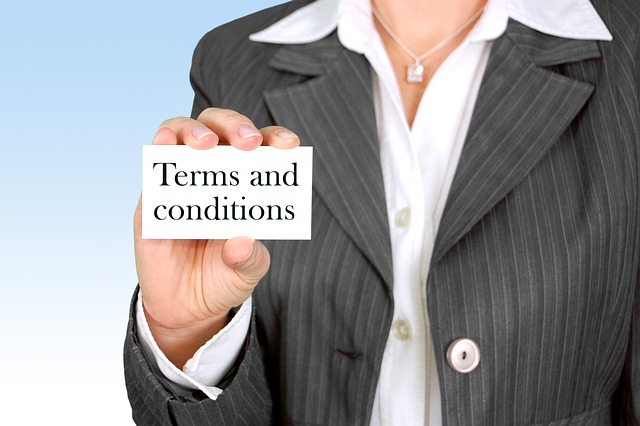TL;DR: Understanding student rental agreements is paramount for students and landlords. Key terms include rent payment schedules, lease durations, maintenance duties, subletting rules, security deposits, pet policies, noise expectations, and visitor guidelines. Both parties should be aware of their rights and responsibilities, with landlords providing clear agreements and students ensuring timely payments and property care. Scrutinizing clauses can help secure favorable conditions and resolve disputes effectively through methods like mediation or arbitration.
Navigating lease agreements in student housing can be complex, but understanding key terms and conditions is essential for both students and landlords. This comprehensive guide breaks down the rights and responsibilities of each party, helping you decipher crucial lease provisions. Learn how to negotiate terms effectively and resolve disputes legally. By familiarizing yourself with these aspects, you’ll approach your student rental agreement with confidence and ensure a positive living experience.
- Understanding Key Terms and Conditions of Student Rental Agreements
- Rights and Responsibilities of Students and Landlords
- Deciphering Lease Provisions: What to Look Out For
- Negotiating Terms: Empowering Yourself as a Student Tenant
- Resolving Disputes: Knowing Your Legal Recourse
Understanding Key Terms and Conditions of Student Rental Agreements

Navigating lease agreements in student housing requires a keen understanding of key terms and conditions. Student rental agreements often include specific clauses related to rent payment schedules, lease duration, maintenance responsibilities, and subletting policies. Familiarizing yourself with these terms is essential to avoid misunderstandings or unexpected charges.
Pay close attention to details about security deposits, late fees, and any restrictions on pet ownership or smoking. Some agreements may also outline expectations for noise levels and visitor policies. Understanding these conditions empowers students to make informed decisions, ensuring a positive living experience and avoiding potential pitfalls associated with student rental agreements.
Rights and Responsibilities of Students and Landlords

When it comes to student rental agreements, both students and landlords have specific rights and responsibilities that must be understood. Students have the right to safe and habitable living conditions, privacy, and clear communication regarding any maintenance issues or changes in the lease terms. They are also responsible for keeping the property clean, paying rent on time, and adhering to any community guidelines or house rules.
On the other hand, landlords are obligated to provide a detailed student rental agreement that outlines all terms, conditions, and expectations. This includes maintaining the property, ensuring it complies with local housing regulations, and respecting tenants’ privacy rights. Landlords also have the right to set reasonable rent amounts, terminate leases under specific circumstances (like non-payment or property damage), and screen potential tenants to ensure responsible living environments for all students.
Deciphering Lease Provisions: What to Look Out For

Navigating lease agreements in student housing requires careful scrutiny, as these documents can significantly impact your living experience and financial obligations. When reviewing a student rental agreement, pay close attention to several key provisions. First, understand the terms related to rent payments, including due dates, late fees, and any potential increases throughout your tenancy. Secondly, check the rules regarding maintenance and repairs; who is responsible for addressing issues within the unit or common areas?
Additionally, familiarize yourself with the lease’s duration, renewal options, and termination clauses. Be wary of restrictions on subletting or having guests stay, as these can limit your flexibility during your time as a student. Other important aspects include privacy policies, visitor regulations, and any specific rules about pet ownership. Deciphering these provisions will empower you to make an informed decision when choosing a place to call home during your academic journey.
Negotiating Terms: Empowering Yourself as a Student Tenant

As a student, navigating lease agreements can seem daunting, but empowering yourself with knowledge is key to securing a favorable student rental agreement. Start by understanding your rights and obligations as a tenant. Research local tenancy laws and regulations that protect students, so you know what to look out for and what you can negotiate.
During discussions with the landlord or property manager, don’t be afraid to ask questions and clarify terms. Common areas of negotiation include rent amount, payment deadlines, utility inclusions, and maintenance responsibilities. Student rental agreements often have unique considerations like flexible lease terms or specific rules about subletting and guests. Use these conversations to your advantage, advocating for terms that work best for your budget and needs.
Resolving Disputes: Knowing Your Legal Recourse

When disputes arise in student housing, understanding your rights under the lease agreement is crucial. Student rental agreements can be complex, with both parties—landlords and tenants—having specific obligations. Knowing your legal recourse can help de-escalate tensions and ensure fair resolution. If a maintenance issue persists after timely reporting or if there’s a disagreement over rent adjustments, reviewing the agreement for clauses on dispute resolution is essential.
Many agreements include provisions for mediation or arbitration, offering alternative methods to court battles. Familiarize yourself with these processes as they can be more cost-effective and faster. Consulting legal advice remains beneficial, especially when dealing with seemingly unfair terms or unexpected charges, ensuring you understand your rights and obligations within the student rental agreement.






